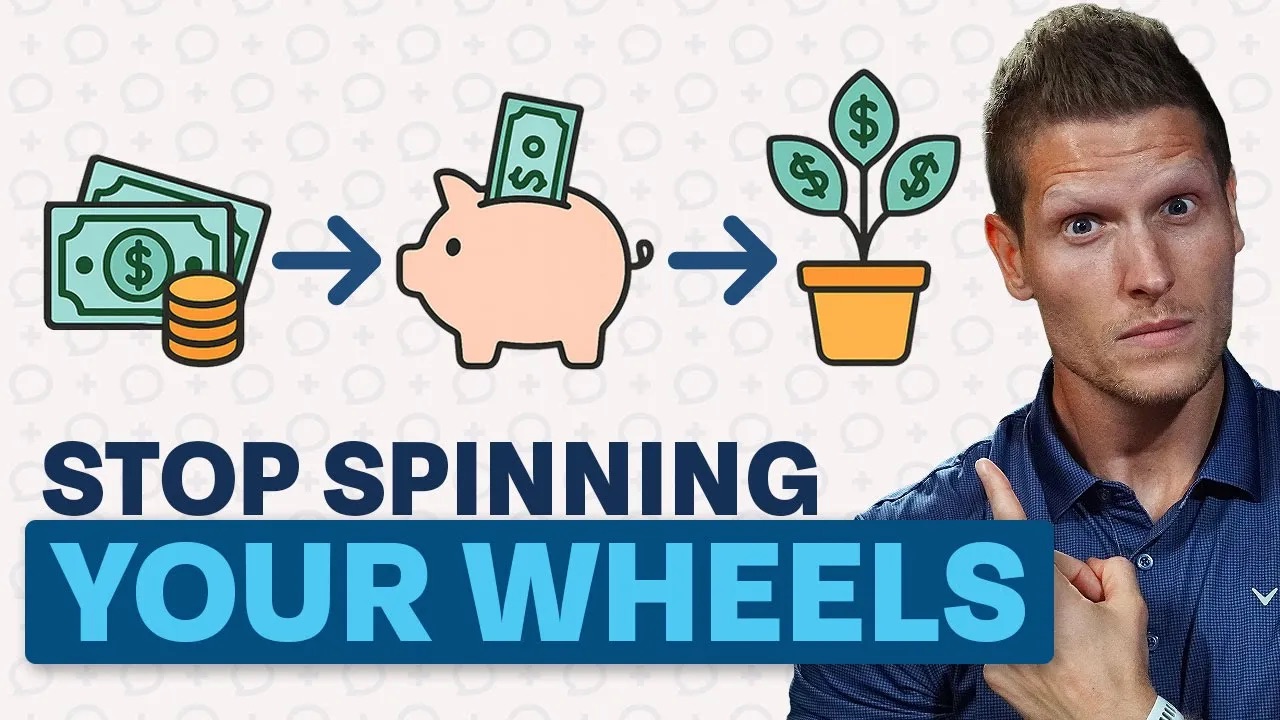Alright, let's move on to Drew's question. Money Guy team, looking at UTMA for our four-year-old daughter for a car, a house, a wedding, whatever she wants. She already has a 529 in a Target Index Fund. Should the UTMA be in S&P or a Target Retirement Fund? And I'm curious to know what you guys think about saving for children in this strategy in general. Thanks, Brian.
I'll speak to the first part. I'll speak the first part about, like, should I do the target retirement? And then I want you to talk about different ways you save. Your kids are older than me, even saving for kids longer than I have, right? Let's think that. Thing I know your kids are not older than me, that'd be hilarious. That'd be awesome and make him like my dad, right? Why didn't I... Here's what... Oh man, you're just mean. Keep going. Here's what I love about 529s and why I would like target retirement index funds, because it is a finite timeline. We know that when Little Junior, when the baby is born or little lady is born, we know that around the age of 18, they're probably going to go off to school. So, I know we got an 18-year time horizon through which we can have those dollars grow. But right now, we want to be really, really aggressive. And then as we get closer and closer and closer to their freshman semester, to that enrollment date, we wanted to get more and more conservative. So, something like a target retirement in this index fund is a great solution there because all I got to do is answer two questions: how much can I save? When do I need the money? UTMA's are a little bit more ambiguous because you just said, and I think it's great because dads always say this, he's like, "This might be for a car, for a house, for anything that she wants." Isn't that the way that most parents actually approach making that kind of decision? You don't know what those dollars will be used for. Maybe it's going to be for a car, maybe it's going to be for a house down payment, or maybe it's going to be for a wedding fund, or maybe it's going to be for a fill-in-the-blank. I think because you don't have a definite and finite timeline, I personally, me, don't think it's crazy for UTMA assets that you don't know the specific purpose for them to think about something like a low-cost index fund like the S&P 500, as opposed... So long as you, as Papa or you as Mama, have the wherewithal to not try to time the market and buy and sell, if you need the automated solution that a target retirement fund provides, I think that makes a whole lot of sense. This is one of those things when I hold up the financial order of operations, you know, this is a step eight type question. You make sure you have that financial foundation all the way through with steps one through seven on your financial life before you start thinking about the kids. But this is a step eight
Financial Order of Operations question. There's a hierarchy amongst the accounts that you can build up for your kids. The first college 529, you already checked the box on that. It sounds like that's a good thing because I love 529s because they not only have to be used for, we always say, college, but they can actually be used K-12. They can be used for trade schools. And recently upcoming, there's gonna be ability to even get this money into their Roth accounts in the future, so there's really a lot of versatility in those college savings. So make that your first stop when you're trying to save. But if you've got some, if you're somebody who can save even above and beyond that, you're thinking about the other stuff. And I think Drew talked about house down payment, first car, first car. I don't know, I didn't hear a wedding, but you know, having daughters, I understand wedding too.
This is a little bit of the whipped cream and the cherry for planning for the kids. In my experience, and I'm just gonna tell you what I've done with my daughters. Um, it's easy. I love the S&P 500 and the fact that, let's hear me out, don't just cut off, don't hit pause right now, yes, no, because that's kind of where Bo was going. I love buying that every month for my own personal assets. However, for my daughters, what I've done in their custodial account is that I think about the date of need. And here's the reality, unfortunately. If you have a zero, a one-year-old, a two-year-old, three-year-old, and you just start investing, what just like we have 88 times over for the 2021-year-old, we have something for the really young kids out there. If you go to moneyguy.com/resources, but the reality is, if you're saving in that account, that money is probably gonna get spent somewhere between age 25 and 30.
And hear me out on this, they're going to, who if they're buying an engagement ring, they're going to think about this account. And when they go to buy that first house, they're going to think about this account because they're going to know what's out there. So that stuff's all gonna happen between 25 to 30. So for my own daughters, I use the indexed target retirement funds, you know, the big three that are kind of industry leaders: Fidelity Investments, Charles Schwab, and Vanguard. Um, if you just can think of when you need the money, how much you're willing to save for them, it does the rest of the heavy lifting.
You know, so that's what I use for the other stuff, for the houses, the weddings, and that type of thing. But there's a third bonus level as your kids get older and they start getting their first job. They may be babysitting in the neighborhood, cutting grass, or like my daughter, she started, because she did those things first, but then she started working at Chick-fil-A. I do a dollar-for-dollar match into a custodial Roth IRA. Because when you go back and look at that deliverable that I was talking about, where what can a dollar become by the time you retire, your 14-year-old or 15-year-old that starts working at the fast food restaurant, if you can do a dollar-for-dollar match, and it's in a Roth account, there's a good chance that money will actually turn into what you're saying. Because it's not like they're going to use that money for the house down payment because you're hopefully gonna do a good enough financial education. They're going to get excited about this. This is the money that's for my easy retirement. Don't miss out on that opportunity. The day they actually start making their money, load them up with some parental matching money because it has worked tremendously well for me and my daughter. What I think is great about it is that, look, we know the market's been bad. I haven't been drawing too much attention to the volatility. But when markets are making money, I'll show her her monthly statement. I'll be like, "Hey, you realize last month your portfolio made $375? I was like, do you realize when you first started, it was a little over ten dollars an hour? You realize that would have been close to a full if you were doing full-time work? Since you're working part-time, I mean, that was probably a month of your labor right there, just the money working for you." And I could see the light bulb go off and be like, "Yeah, this is pretty cool when my money does stuff without me having to actually use my back, my brains, my hands." That's what you're trying to light that fire, get them excited, and create that young financial mutant that will conquer the world.
For more information, check out our
free resources here.













